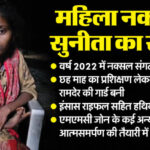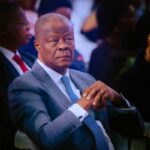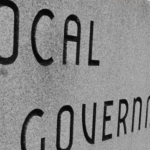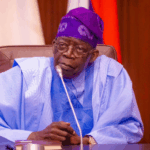Education is the bedrock of societal progress, it shapes minds, nurtures creativity, and equips individuals with the intellectual tools to thrive in an increasingly complex world. In West Africa, where rapid population growth meets the urgent need for innovation, entrepreneurship, and governance reform, education assumes an even greater significance. It is not merely a means of acquiring knowledge for employment but a catalyst for freedom, productivity, and nation-building. The Institute for Free Market and Entrepreneurship (IFREME) West Africa believes that a well-structured educational system has the power to liberate minds, stimulate enterprise, and lay the foundation for an economy rooted in freedom, responsibility, and sustainable prosperity.
However, for education to truly fulfill this transformative role, it must transcend traditional models that emphasize rote learning and conformity. Too often, educational systems across Africa have prioritized memorization over creativity and dependency over self-reliance. Such systems produce job seekers instead of job creators, followers rather than leaders, and citizens reliant on the state rather than active contributors to society. The shift toward an education that liberates the mind is therefore essential. When learners are encouraged to think critically, challenge limitations, and embrace responsibility, education becomes a tool of empowerment rather than indoctrination. True education enlightens, it fosters self-confidence, innovation, and a sense of purpose that enables individuals to exercise their liberty productively and contribute meaningfully to national development.
Liberty, in this context, refers to the freedom of individuals to think, act, and exchange voluntarily without coercion. It is the foundation upon which free societies and vibrant economies are built. When education instills liberty, it creates individuals who are capable of self-governance, independent reasoning, and voluntary cooperation. A society that values liberty fosters innovation because free people dare to experiment, take risks, and challenge the status quo. Economic development thrives where liberty is protected, where property rights are secure, and where entrepreneurship is encouraged. Conversely, when education and governance systems stifle freedom, creativity dies, productivity declines, and societies become trapped in cycles of dependency and stagnation. For West Africa to experience sustainable economic transformation, its education systems must be restructured to reflect the values of liberty, free enterprise, and individual responsibility.
One of the most effective ways to link education with liberty and economic development is through entrepreneurship education. Entrepreneurship is not merely about starting a business, it is a mindset, a way of thinking and acting that identifies opportunities, takes initiative, and creates value. When students learn entrepreneurship early in life, they develop resilience, adaptability, and problem-solving skills. They begin to see challenges not as obstacles but as opportunities to innovate. Entrepreneurship education helps learners understand that wealth is not distributed by governments but created through innovation, trade, and voluntary exchange. It teaches self-reliance, accountability, and the importance of serving others through market-driven solutions. This form of education moves learners away from the belief that employment is the only path to success and instead instills the confidence that they can become creators of jobs and engines of economic growth.
To make entrepreneurship education effective, it must be experiential. Theoretical knowledge is important, but without application, it becomes sterile. Experiential learning allows students to test ideas, engage in real-world projects, and learn from both success and failure. Through this process, they internalize core principles such as risk management, innovation, and market understanding. Schools and universities across West Africa should therefore adopt project-based and problem-based learning that connects classroom concepts to community challenges. For example, students can be tasked to design small businesses that address local problems such as waste recycling, food insecurity, or digital literacy. Such practical engagement bridges the gap between theory and practice, turning education into a living experience that directly contributes to societal improvement. Experiential entrepreneurship education not only creates skilled graduates but also responsible citizens who understand the value of hard work, creativity, and voluntary exchange.
Financial literacy is another essential dimension of education that directly impacts liberty and economic development. Financial literacy involves understanding how money works, how to earn it, manage it, save it, invest it, and use it responsibly. Sadly, financial education is often overlooked in traditional curricula, leaving young people ill-prepared to handle the realities of modern economic life. Teaching children and young adults about money at an early age lays the foundation for a lifetime of sound decision-making. It helps them understand that financial success stems from discipline, patience, and informed choices. For instance, when children learn the difference between needs and wants, they begin to prioritize essentials and plan for the future. When they understand saving and budgeting, they cultivate self-control and long-term thinking. Introducing the concept of compound interest can further spark curiosity about investment and the growth potential of delayed gratification. These early lessons nurture independence and responsibility, two traits that are essential for liberty and prosperity.
Parents, educators, and policymakers all play important roles in promoting financial literacy. Families can make learning about money practical by involving children in budgeting discussions, setting savings goals, or engaging in small-scale entrepreneurial activities. Teachers can integrate financial topics into mathematics or social studies, making the concepts relatable through examples like managing school funds or planning community projects. Governments and institutions can support this effort by including financial education as a core subject within national curricula. A financially literate population is less likely to fall into poverty traps, less dependent on government aid, and more capable of creating wealth. Financial literacy, in essence, equips citizens to manage their economic freedom wisely, ensuring that liberty does not lead to recklessness but to responsible participation in the marketplace.
The effectiveness of education, however, depends largely on the quality and passion of its educators. Teachers are the torchbearers of knowledge and catalysts of mindset transformation. They not only impart academic content but also inspire students to question, create, and lead. For education to truly promote liberty and entrepreneurship, educators themselves must embody these principles. Professional development programs should therefore train teachers to integrate innovation, problem-solving, and economic reasoning into their instruction. Educators with practical entrepreneurial experience can serve as role models, showing students that success is achievable through initiative and effort. Likewise, mentorship programs connecting learners with business leaders and innovators can bridge the gap between theory and practice. Mentorship builds networks, provides guidance, and encourages perseverance, values indispensable to entrepreneurship and economic growth.
Beyond the classroom, education must be supported by enabling ecosystems. Entrepreneurship does not thrive in isolation; it flourishes in environments that provide access to resources, networks, and markets. Institutions such as innovation hubs, business incubators, and mentorship centers should be developed in partnership with schools and universities to nurture young entrepreneurs. Governments must also play their role by creating policies that encourage enterprise rather than stifle it through excessive taxation, regulation, or bureaucracy. Public and private sectors can collaborate to provide funding opportunities, competitions, and innovation grants for students with viable business ideas. When the ecosystem is supportive, education becomes a launchpad for economic participation, and liberty transforms into tangible prosperity. The goal is to create a society where young people see entrepreneurship not as a risky alternative but as a viable and rewarding career path.
A key consideration in promoting education and entrepreneurship in West Africa is contextual relevance. Programs designed for Western economies cannot be directly transplanted into African contexts without adaptation. Educational initiatives must take into account local realities, cultural norms, resource availability, and community structures. Africa’s informal economy, for instance, holds immense potential for entrepreneurial development if properly harnessed through targeted education. Teaching local farmers improved agricultural practices combined with business management skills can transform subsistence farming into profitable agribusiness. Empowering artisans with digital marketing skills can open new markets and increase income. Encouraging young people to use technology to solve local problems, from renewable energy to logistics, can drive innovation rooted in African realities. Contextually relevant education ensures inclusivity and sustainability, bridging the gap between modern economic theories and traditional practices that have long sustained African societies.
At the heart of this educational transformation is the principle of liberty. Liberty is not merely a political ideal, it is an economic necessity. It gives individuals the freedom to innovate, compete, and create value. Without liberty, education loses its vitality, as learners are confined to predetermined outcomes rather than exploring their unique potential. The free market, which thrives on voluntary exchange and competition, is the most natural expression of liberty in the economic sphere. When education promotes an understanding of how free markets work, how prices signal value, how competition drives innovation, and how voluntary exchange benefits all parties, it prepares individuals to participate responsibly and effectively in the economy. Moreover, liberty nurtures accountability; it reminds individuals that while they are free to pursue their goals, they must also bear the consequences of their choices. This balance of freedom and responsibility is the moral foundation upon which sustainable economic development rests.
Economic development, therefore, is not simply the result of government programs or foreign aid, it is the product of empowered individuals acting freely within a fair and open system. Education that prioritizes liberty equips individuals to think like problem-solvers rather than dependents, innovators rather than imitators. It encourages people to question inefficiencies, challenge corruption, and seek market-driven solutions to social and economic challenges. When citizens are educated to understand the relationship between effort, reward, and freedom, they become stakeholders in their nation’s development. Such education transforms not only individuals but entire societies, driving innovation, productivity, and prosperity from the ground up.
To achieve this vision, curriculum reform is indispensable. Schools must move away from rigid, test-centered models and embrace dynamic, experiential frameworks that combine critical thinking with practical application. Entrepreneurship, financial literacy, civic responsibility, and technological innovation should be embedded at every educational level. This reform must be accompanied by an investment in teacher training, research, and institutional capacity. It should also prioritize inclusivity, ensuring that girls, rural populations, and marginalized groups have equal access to quality education. The broader goal is not just to produce graduates, but to nurture citizens who are economically independent, socially responsible, and morally grounded.
Ultimately, education, liberty, and economic development are not isolated pursuits, they are interconnected forces that shape the destiny of nations. A well-educated citizenry understands the value of freedom, the principles of markets, and the ethics of productivity. A free society provides the environment where education can flourish without political interference or censorship. A prosperous economy, in turn, provides the resources to sustain quality education and protect liberty. The three form a virtuous cycle that propels societies toward progress. For West Africa to harness this power, stakeholders across government, academia, and civil society must collaborate to build systems that reward merit, protect innovation, and celebrate enterprise. The vision is to create a generation that not only dreams but builds, a generation that understands that freedom and prosperity are inseparable.
The future of Africa lies not in dependence but in empowerment, not in aid but in enterprise, and not in control but in creativity. Education is the pathway to this freedom. It must evolve into a force that liberates the mind, fuels ambition, and strengthens the moral fiber of society. Liberty gives education purpose, and economic development gives it expression. Together, they form the foundation of a truly free, prosperous, and dignified Africa, an Africa where individuals are free to learn, to innovate, and to thrive.
.Okoye, Local Programs Lead, Abuja @IFREME, [email protected]
+234 903 583 5186











